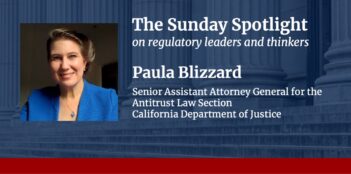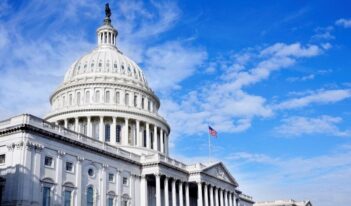No Need for the Supreme Court to Revisit the Fairness Doctrine
The Court should not overturn a settled doctrine that ensures the fair use of airwaves.
Revisiting Broadcast Fairness
Scholars and practitioners debate the continued need for the FCC’s fairness doctrine for broadcast news.
California and the Antitrust Frontier
Paula Blizzard discusses the California Department of Justice’s leadership in antitrust enforcement.
The Viability of Local Energy Communities
Scholars discuss methods to encourage the creation of local energy communities.
A New Approach to Understanding Content Moderation
Scholars propose an alternative First Amendment framework for online platform regulations.
Lights, Camera, Deception
Scholars argue that regulators and celebrities must work to halt ads for miracle weight loss products.
Revisiting Congressional Oversight
Abolishing needed protections through the Congressional Review Act is not effective oversight.
Stewardship or Censorship at the FCC
Experts debate whether the FCC is necessary to the information marketplace or a dangerous anachronism.
Do Digital Regulations Hinder Innovation?
Scholar offers alternative explanations on why the European Union falls behind in technological progress.
Delegated Discretion is the New Deference
Scholar suggests that recent shifts in administrative law will matter less than critics fear and supporters hope.
Orbital Debris Mitigation Guidelines
Scholars address methods to ensure the long-term sustainability of low-Earth orbit.












